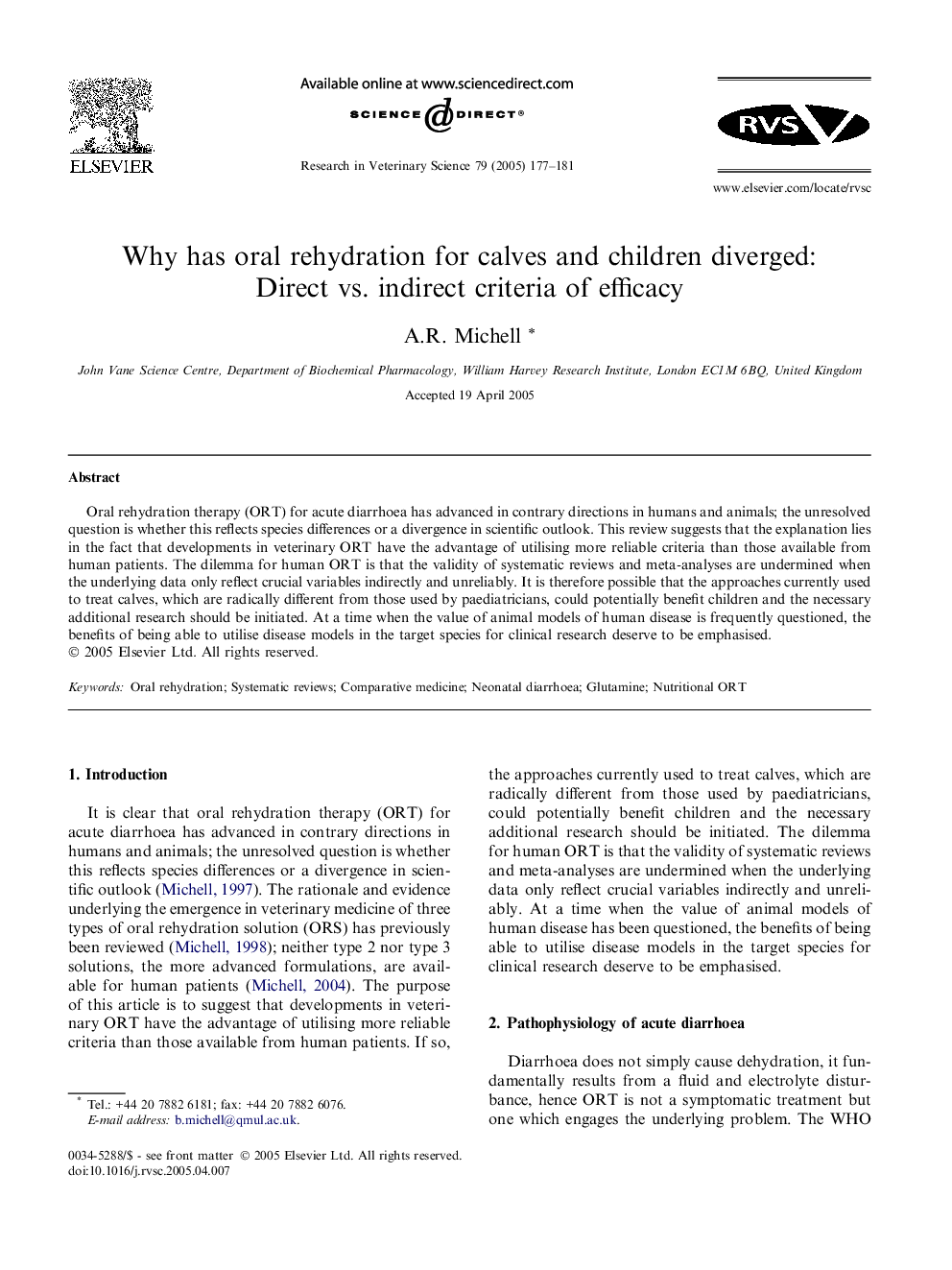| Article ID | Journal | Published Year | Pages | File Type |
|---|---|---|---|---|
| 8985970 | Research in Veterinary Science | 2005 | 5 Pages |
Abstract
Oral rehydration therapy (ORT) for acute diarrhoea has advanced in contrary directions in humans and animals; the unresolved question is whether this reflects species differences or a divergence in scientific outlook. This review suggests that the explanation lies in the fact that developments in veterinary ORT have the advantage of utilising more reliable criteria than those available from human patients. The dilemma for human ORT is that the validity of systematic reviews and meta-analyses are undermined when the underlying data only reflect crucial variables indirectly and unreliably. It is therefore possible that the approaches currently used to treat calves, which are radically different from those used by paediatricians, could potentially benefit children and the necessary additional research should be initiated. At a time when the value of animal models of human disease is frequently questioned, the benefits of being able to utilise disease models in the target species for clinical research deserve to be emphasised.
Related Topics
Life Sciences
Agricultural and Biological Sciences
Animal Science and Zoology
Authors
A.R. Michell,
